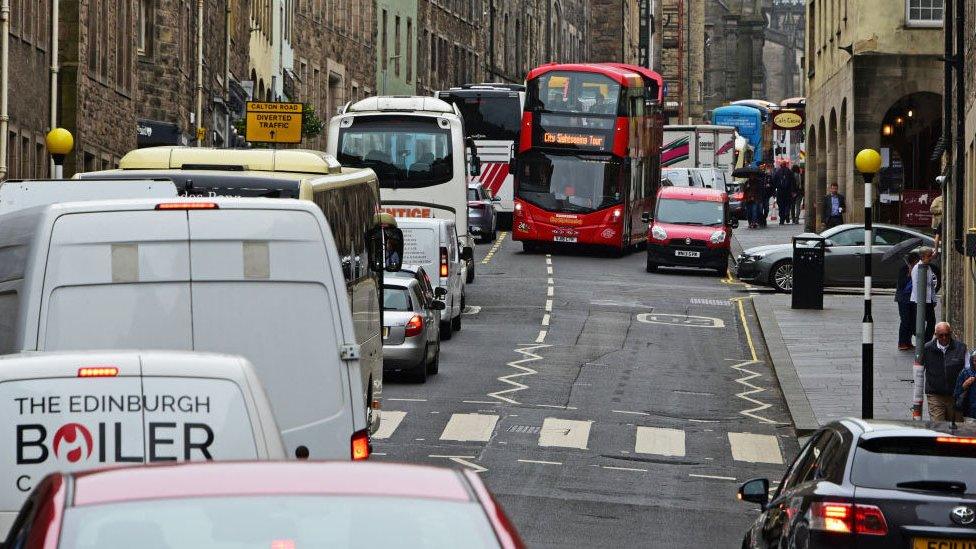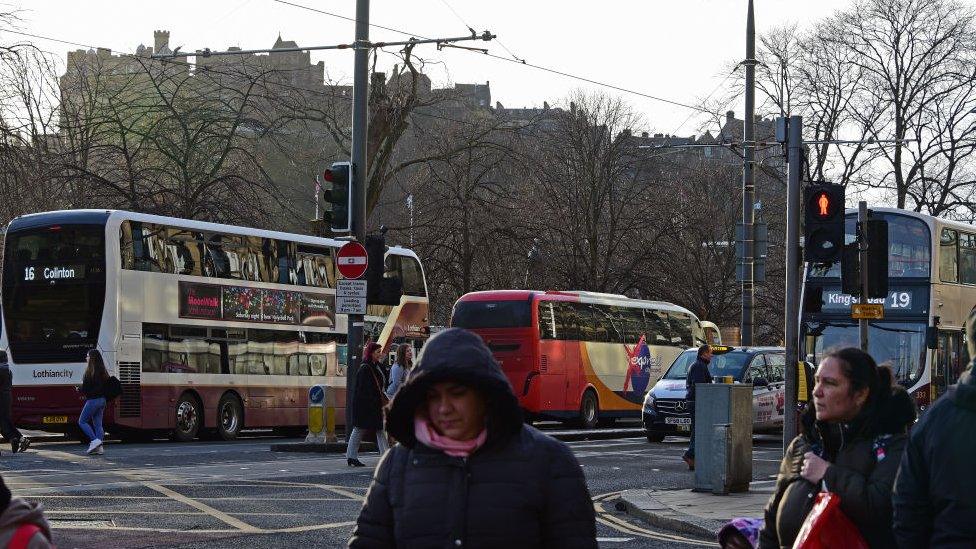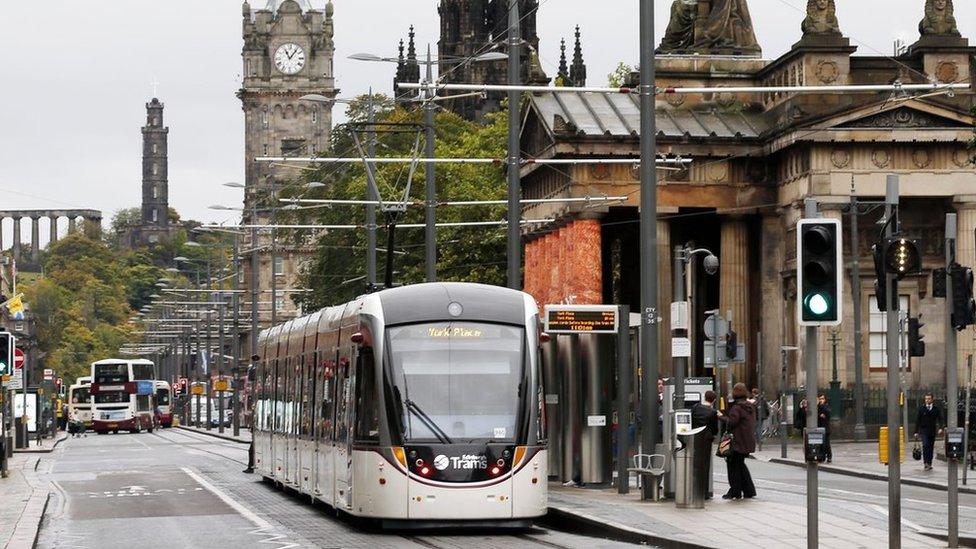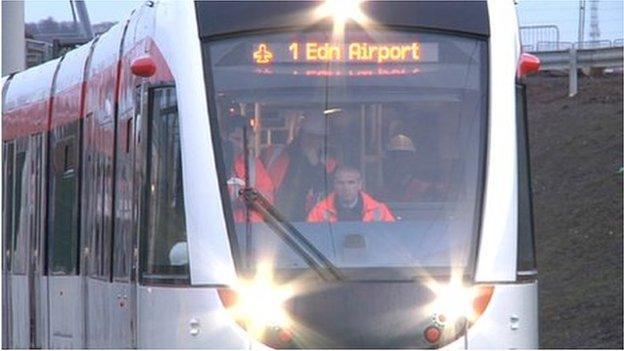Edinburgh transport plans get consultation go-ahead
- Published

Edinburgh was named the UK’s most congested city in 2021 for the fourth straight year
Edinburgh Council has approved a three-month consultation period on plans to reshape the city's transport network as it bids to reach net zero by 2030.
The proposed £1bn transition over seven years will include more bus and cycle lanes and wider footpaths.
It is also aiming for a 30% reduction in car journeys in the city by 2030.
Transport convener Scott Arthur said he wanted to "get into every nook and cranny of the city to hear what people think" and "improve the plans further".
"Edinburgh is already one of the most congested cities in the UK," he told BBC Radio's Good Morning Scotland programme.
"The council has agreed to set aside land for a further 37,000 houses in Edinburgh, and if we do nothing it is only going to add to the congestion."
Funding for the plans has been ring-fenced by the Scottish government.
The council has published three action plans - on active travel, external, public transport , externaland parking, external - aimed at increasing public transport capacity and making it more reliable and efficient.
The measures are also designed to make it easier to cycle and walk around the city.
"If we can get people out of their cars, public transport is there for the heavy lifting," said Mr Arthur, the City of Edinburgh Council's transport and environment convener.
"There will be some people for whom the car remains an essential element of the way they live.
"But whether you drive 100 journeys a month or 100 a year, we want people to think about ones they could make on public transport - whether that's going into the city centre or to the local shops. Hopefully they can get some exercise along the way too."

'Absolute nightmare'

Buses are often backed up on Princes Street
Scott, from Glasgow, travels to Edinburgh for work on a regular basis.
"Travelling around Edinburgh is an absolute nightmare," he told BBC Radio Scotland's Mornings programme.
"I have worked in Edinburgh for decades and if I go across now, I park my electric car at the Park and Ride at Ingliston (near Edinburgh Airport) and plug it in there.
"Then I use bus services put on by the companies I work for. If I try to use the tram or main bus services, they are just not up to scratch, either because of the frequency or the congestion, which is ridiculous now.
"You can be nose to tail sitting behind eight other buses along the entire length of one of the main drags, going absolutely nowhere.
"It takes you 40 minutes to get to the outskirts of Edinburgh, then another 40 minutes to get into the middle."

Some councillors voiced concern about the cost and lack of detail in the plans.
Conservative councillor Marie Clair-Munro said: "The city's residents need to know how much each scheme is going to cost, funding and delivery time."
Lib Dem group leader Kevin Lang said he was "all for ambition" but "worried about delivery".
"Have we got the officer capacity to deliver this?" he asked.
Plans to introduce a congestion charge in the capital were rejected back in 2005 after more than 74% of residents voted against such a toll.
But Mr Arthur warned that if people could not be persuaded to travel into the city entre by other means, a charge could be brought in.
"At the moment we are building capacity in the public transport routes into the city, giving buses priority - they're going to be more reliable and more efficient," he said.
Congestion problem
"But once we get to about 2025, if people are not taking advantage of what will be a first-class, improved bus service, we will look at a congestion charge and develop that in partnership with businesses and surrounding local authorities.
"We will use the money from that to make public transport even better."
The council will also clamp down on cars parked in bus lanes and vehicles loading in bus lanes "to the maximum in our power," Mr Arthur said.
He acknowledged that a heavy programme of roadworks - with 14,000 applications every year - was not helping the long-term goal of easier access around the city.
"It is impossible to do them without delays," he added. "Fixing the congestion problem is a key part of our response.
"This is a transition, it's not going to happen tomorrow; it's going to happen over the next seven years.
"It's also about improving health and wellbeing, and it will also help the economy as it comes out of Covid, without a doubt."
Additional reporting by local democracy reporter Donald Turvill.
Related topics
- Published12 February 2021

- Published8 February 2019
